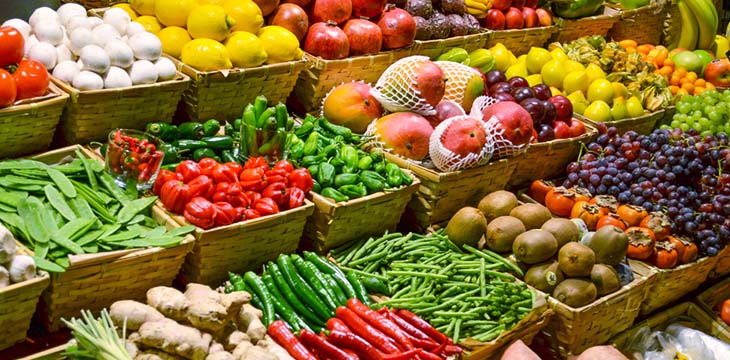|
Getting your Trinity Audio player ready...
|
Food fraud isn’t a term you hear every day, but according to the United States-based Customer Brands Association, it’s a $40 billion problem that affects approximately 10% of the global supply chain.
From wood chips posing as parmesan cheese to lawsuits over the size of Whopper burgers, U.S. citizens are becoming increasingly concerned about the quality of the food they consume and the integrity of the supply chains that bring it to their plates. In 2022, a survey conducted by the International Food Information Council found that only 24% of American citizens had confidence in the safety of the U.S. food supply, with additives and ingredients being a top concern.
In an attempt to address this colossal problem, innovative companies like UNISOT are using blockchain technology to increase transparency and enable consumers to track food products from source to the point of sale.
How blockchain technology can help fix the food fraud problem and fix supply chains
Blockchains are, in essence, distributed databases that can’t be altered without consensus, meaning data written to them has true integrity. Records are time-stamped and stored on these immutable databases, and any future changes to the data are registered and visible to all concerned.
Using solutions like those powered by UNISOT (using nChain technology), every step in the life cycle of a food product, from farm to plate, can be tracked and traced, creating hitherto unforeseen transparency and true accountability. Everything from the farm something is grown on, to the chain of custody along the supply chain, to the conditions in storage facilities and transport vehicles, can be tracked and traced, leaving an immutable record on the blockchain for all to see.
When consumers pick up an item in a supermarket or order something in a restaurant, they’re able to see all of this information just by scanning a Q.R. code. This allows customers to make more informed decisions, providing them with certainty that the food they’re about to consume has been produced in a way that’s compatible with their values and that it is what it claims to be. In short, selling wood chips as parmesan cheese will become impossible in a blockchain-powered world.
Empowering companies and organizations in the food business
Blockchain technology can empower consumers, giving them all the information they need to make better choices. However, this technology can also create positive change for companies involved in the food industry.
For example, in 2022, Nestlé France (NASDAQ: NSRGF) was hit with a €250 million ($276 million) civil suit after an E. coli outbreak killed two children and infected dozens of others. This has been called Europe’s biggest food scandal in 30 years, creating panic in France’s food industry.
Aside from the human tragedy at the heart of this terrible event, Nestlé, as a business, suffered considerable reputational damage and will pay steep fines to those infected. Yet, major corporations dealing with hundreds or potentially thousands of suppliers have, until now, had no birds eye view of what is going on in their supply chains.
Could blockchain-powered solutions have prevented this tragedy? Sadly, we’ll never know, but they can certainly make it easier to detect outbreaks and prevent infected food from reaching the mouths of unwitting humans in the future, creating a safer, better food industry for all parties, and saving businesses from the reputational and financial damage that comes with these unfortunate events.
The utility of blockchain technology is becoming clear
Until recently, the blockchain industry has been characterized by feverish speculation on the tokens issued on and linked to various digital ledgers. Thankfully, that era is passing, and the innovation blockchain technology can usher in is coming into view.
Yet, for blockchain to reach its true potential and revolutionize supply chains, among other things, it needs to scale infinitely, comply with relevant laws and regulations, and be understood by the businesses and everyday people who could benefit from it.
Thankfully, there is at least one blockchain that can scale and which was designed from the outset to comply with financial and data regulations; Bitcoin SV (BSV). To learn more about it and other utility blockchains, or to pitch your solution or product to a receptive audience, grab a free ticket to the largest blockchain conference in the world between May 31 and June 2.
The London Blockchain Conference welcomes entrepreneurs, developers, and thought leaders from across the blockchain industry to speak, pitch, and mingle with like-minded folk. Reserve your ticket today!
DunavNET’s Srdjan Krco on how Blockchain & IoT will transform food supply chain

 02-24-2026
02-24-2026 




